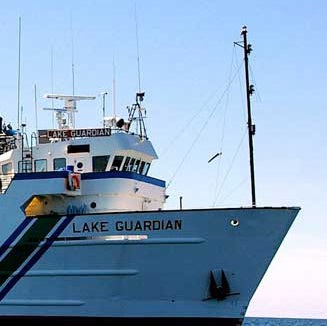
Year: 2014
This site provides easy access to long-term, environmental monitoring data collected throughout the Great Lakes.
For more detailed information, visit Great Lakes Monitoring

This site provides easy access to long-term, environmental monitoring data collected throughout the Great Lakes.
For more detailed information, visit Great Lakes Monitoring

Explore some the city’s celebrated sites as you walk or bike the tour routes. You will learn the history, ecology, and engineering of Chicago’s lakefront.
For more detailed information, visit Chicago Water Walk App
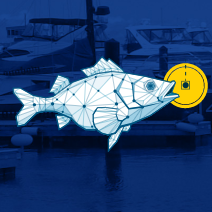
Angler Archive provides easy access to long-term recreational fishing data collected in southern Lake Michigan. These data have been provided by the Illinois Natural History Survey (INHS) and Indiana Department of Natural Resources (IDNR). The Angler Archive allows you to explore trends in three recreational fisheries from the mid 1980s, filter and compare data by factors such as month, site, and target species, visualize the data in a number of different ways, and export charts and data table.
For more detailed information, visit Angler Archive
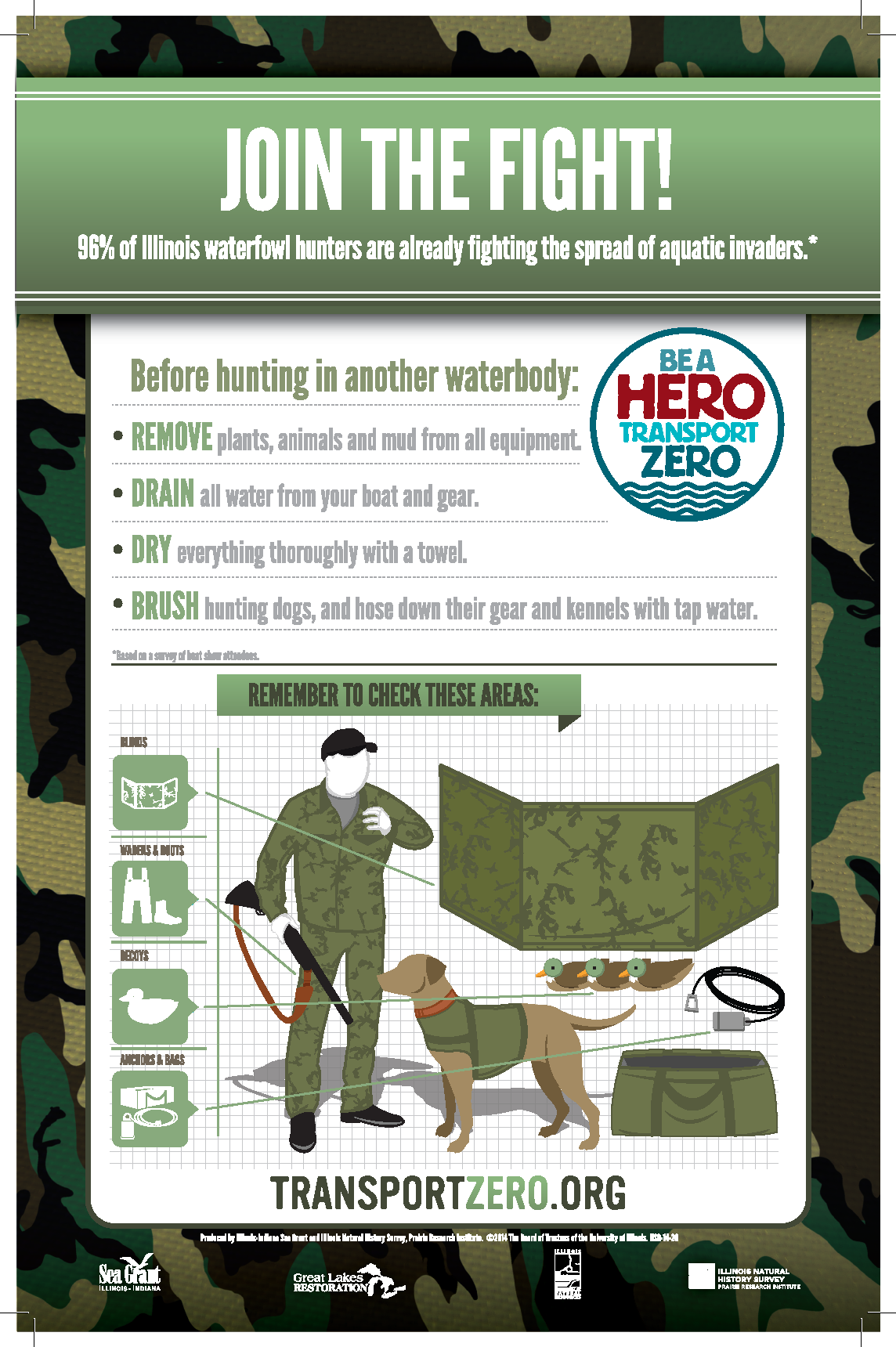
This poster explains simple actions you can take to help protect local waters by fighting the spread of aquatic invasive species when hunting.
A plaintext version of the information is available here.
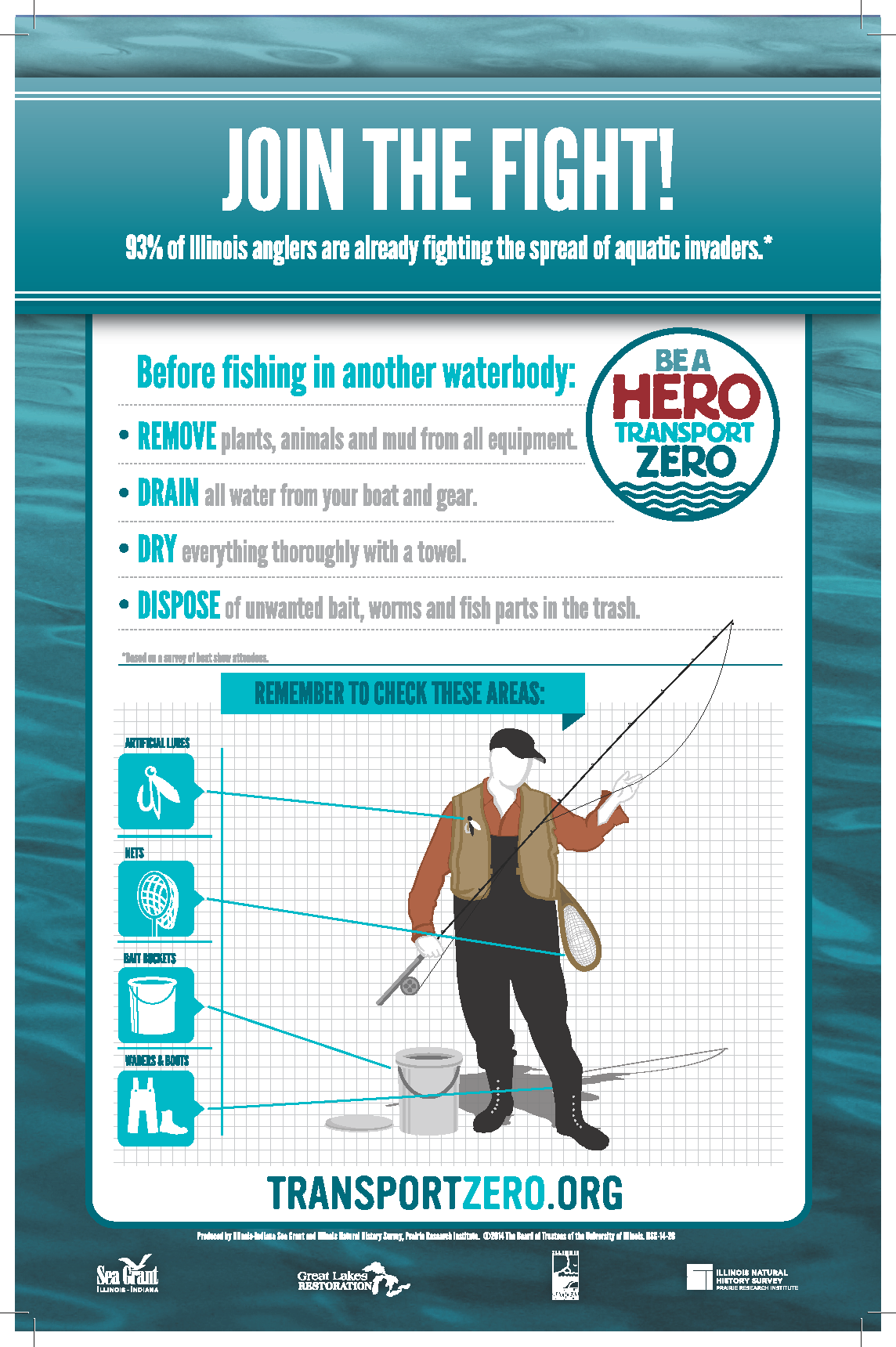
This poster explains simple actions you can take to help protect local waters by fighting the spread of aquatic invasive species when angling.
A plaintext version of the information is available here.
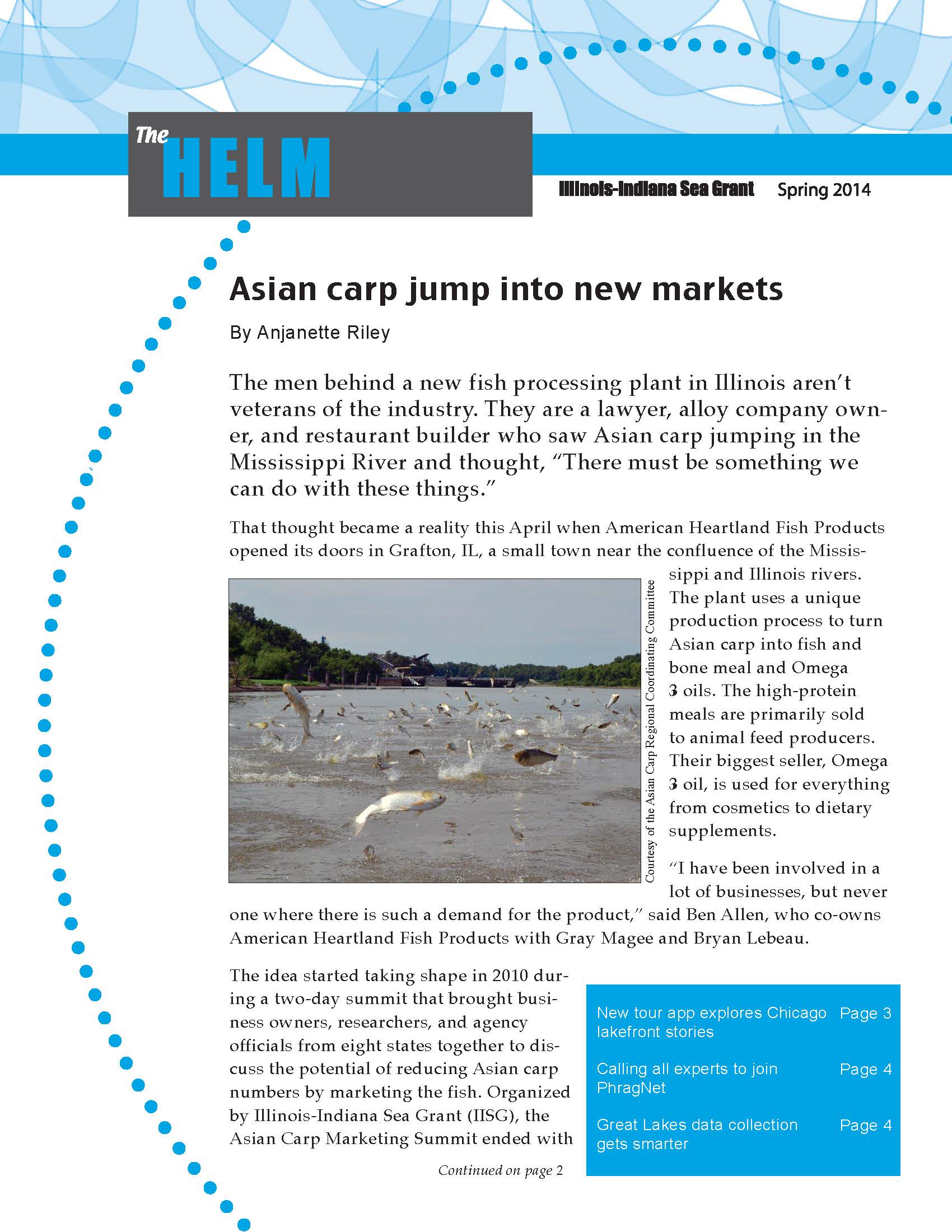
Feature Headlines
Note: Some older Illinois-Indiana Sea Grant publications have not yet been restructured into ADA compliant formats. We are actively working on this. If you are having difficulty accessing a particular item in one of our databases, please contact iisg@purdue.edu with the name of the item and its URL for further assistance.